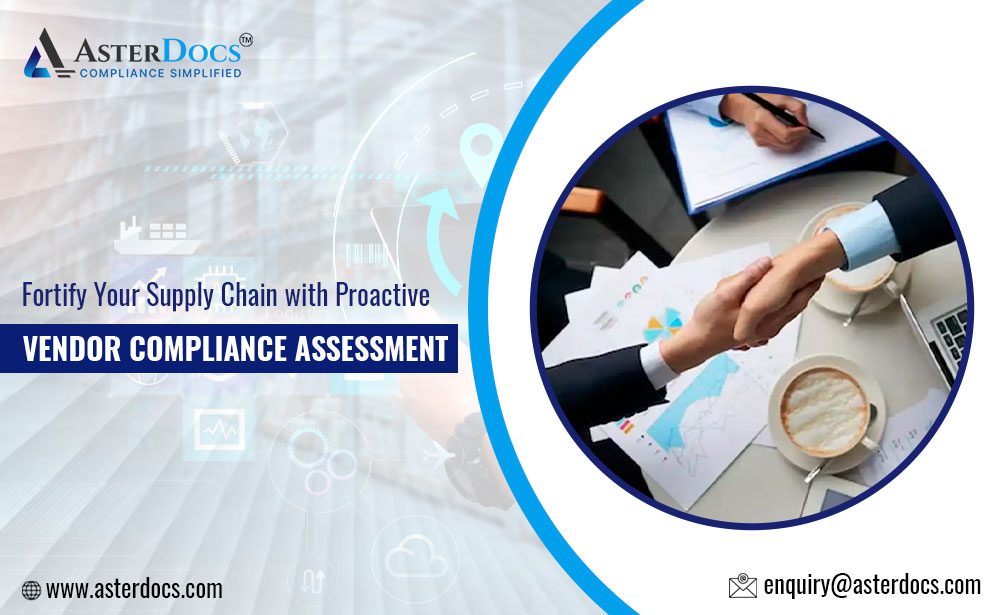Building a resilient and reliable supply chain is paramount in the ever-evolving world of nutraceuticals, where consumer expectations for quality and safety soar. This endeavor hinges on one crucial element: proactive vendor compliance assessment. By meticulously vetting potential suppliers through a robust assessment process, companies can unlock a world of benefits, safeguarding their brand reputation, ensuring product efficacy, and, ultimately, protecting the well-being of their consumers.
Need For a Vendor Compliance Assessment
Why are robust compliance assessments critical in the nutraceutical industry?
- Stringent regulations: The nutraceutical landscape is governed by strict regulations like cGMPs and FDA guidelines. Non-compliance can lead to hefty fines, product recalls, and irreparable damage to brand trust.
- Complex supply chains: Nutraceuticals often have intricate chains spanning continents and diverse ingredients. This raises the risk of contamination, adulteration, and mislabeling.
- Transparency and traceability: Consumers today demand absolute transparency in sourcing and production practices. A thorough assessment ensures that suppliers adhere to ethical and sustainable sourcing principles.
Vendor Compliance Assessment Role
So, how does a well-structured vendor compliance assessment process contribute to a robust nutraceutical supply chain?
Proactive Risk Mitigation:
Identifying red flags: Assessments go beyond paperwork, delving into supplier facilities, quality control procedures, and testing practices. This proactive approach identifies potential non-compliance issues early on, allowing for corrective action or termination of partnerships before reputational damage occurs.
Enhanced Quality and Safety:
Vetting ingredient integrity: Assessments scrutinize suppliers’ sourcing practices, ensuring ingredients are authentic, free from contaminants, and comply with regulatory standards. This translates to consistent product quality and safety for consumers.
Building Trust and Transparency:
Demonstrating commitment to quality: Implementing a rigorous assessment process showcases a company’s commitment to ethical sourcing and product integrity. This fosters trust with consumers, regulators, and business partners alike.
Streamlining Procurement and Efficiency:
Pre-qualifying reliable suppliers: Assessments save time and resources by weeding out non-compliant vendors upfront. This leads to a pool of trusted partners, streamlining procurement processes and ensuring a steady flow of high-quality ingredients.
Continuous Improvement and Innovation:
Sharing best practices: Assessments open collaboration and knowledge-sharing channels with suppliers. This fosters a culture of continuous improvement, leading to innovative solutions and enhanced supply chain resilience.
Beyond the immediate benefits, proactive supplier qualification contributes to the long-term health of the nutraceutical industry. By raising the bar for compliance, companies contribute to a safer, more transparent, and ethical ecosystem, ultimately benefitting consumers and driving sustainable growth.
Transform Supplier Qualification with AsterDocs
Unlock the capabilities of AsterDocs, an advanced supplier qualification software tailored to the needs of contemporary businesses. With its intuitive features, AsterDocs seamlessly enhances supplier management, identifies potential risks, and facilitates collaboration within your supplier network. Experience a revolutionary approach that enables you to proactively anticipate and effectively manage risks, ensuring the resilience of your supply chain and fostering sustainable growth.
The Path Ahead
Finally, vendor compliance assessment is more than simply a checkbox; it is critical to developing a strong and dependable nutraceutical supply chain. Companies that invest in a comprehensive assessment process can reap numerous benefits, including trademark protection, product quality assurance, and stakeholder trust. In the field of nutraceuticals, where quality and safety are critical, proactive compliance evaluation is not only good practice but a formula for success.














